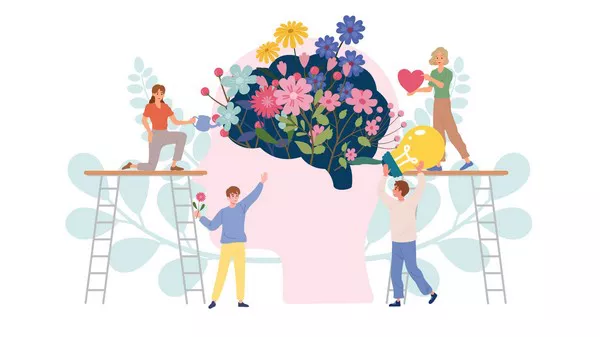Brief, web-based tutorials designed to encourage health care workers to reflect on themes of awe, gratitude, and kindness have shown promise in combating burnout and improving mental health. Developed by researchers at Duke Health, this intervention has demonstrated lasting benefits for mental well-being, including reductions in depression and emotional exhaustion.
The daily, quick intervention was created as a response to the growing mental health challenges faced by health care workers, exacerbated by the COVID-19 pandemic. The approach, which requires just minutes each day, offers an accessible and cost-effective way to address burnout, a widespread issue that was already prevalent among health care professionals before the pandemic.
“Emotional exhaustion was a significant issue among health care workers even before the pandemic, and it’s worsened since then,” said Bryan Sexton, Ph.D., director of the Duke Center for Healthcare Safety and Quality and senior author of the study. “This is not just an issue for health care workers but for the patients they care for as well. There’s a clear need for evidence-based solutions that are both practical and effective.”
Sexton and his team reviewed various interventions designed to help people recover from emotional strain. Central to these interventions is the concept of acknowledging challenges while encouraging positive thinking and actions, such as expressing gratitude, offering kindness, or reflecting on awe-inspiring moments. The researchers distilled this approach into short, manageable reflection sessions that could be easily incorporated into daily routines.
“We call it ‘skills, not pills,'” said Sexton. “Most existing interventions are long and tedious, which makes it hard for exhausted individuals to stick with them. We wanted our intervention to be simple, effective, and easy to follow, even for those with limited time and energy.”
The intervention, known as WISER (Web-based Implementation for the Science of Enhancing Resilience), consisted of two- to seven-minute modules that participants engaged with daily for 10 days. The modules were delivered via text message at 7 p.m. each evening, including a short video and a reflection prompt. These prompts encouraged participants to practice gratitude, perform acts of kindness, strengthen relationships, or reflect on moments of awe.
The team tested the WISER intervention with around 480 health care workers, who were randomly assigned to receive the program immediately or after a two-week delay. The second group served as a control to measure changes in well-being after one week of intervention.
The study assessed a range of emotional and psychological outcomes, including emotional exhaustion, depressive symptoms, work-life balance, happiness, emotional thriving, and recovery. The results were promising: five out of the six well-being measures showed improvement after just one week of using the intervention, with all outcomes improving after one, six, and twelve months.
“These findings demonstrate that just a few minutes a day can have a significant impact,” Sexton said. “Encouraging people to take a moment to reflect on positive moments—whether it’s a beautiful sunset or the kindness of a mentor—can help them recharge, even in the midst of their busiest days.”
Sexton emphasized that the simplicity and low cost of the intervention were key factors in its success. “The beauty of this approach is that it’s non-triggering, easy to implement, and doesn’t require a significant investment of time or money,” he added.
The study’s authors, including Kathryn C. Adair, Xin Cui, Daniel S. Tawfik, and Jochen Profit, believe that these findings offer a practical and scalable solution to a widespread problem. The intervention’s effectiveness in improving emotional well-being with minimal time commitment could make it an ideal tool for health care institutions seeking to address burnout and support the mental health of their staff.
You Might Be Interested In:
-
Common Brain Network Linked to Diverse Brain Atrophy Patterns in Schizophrenia, New Study Finds
-
Caregiver Stress Linked to Higher Hypertension Risk in Black Women, New Study Finds
-
The Link Between Social Media Use and Loneliness: A Closer Look

